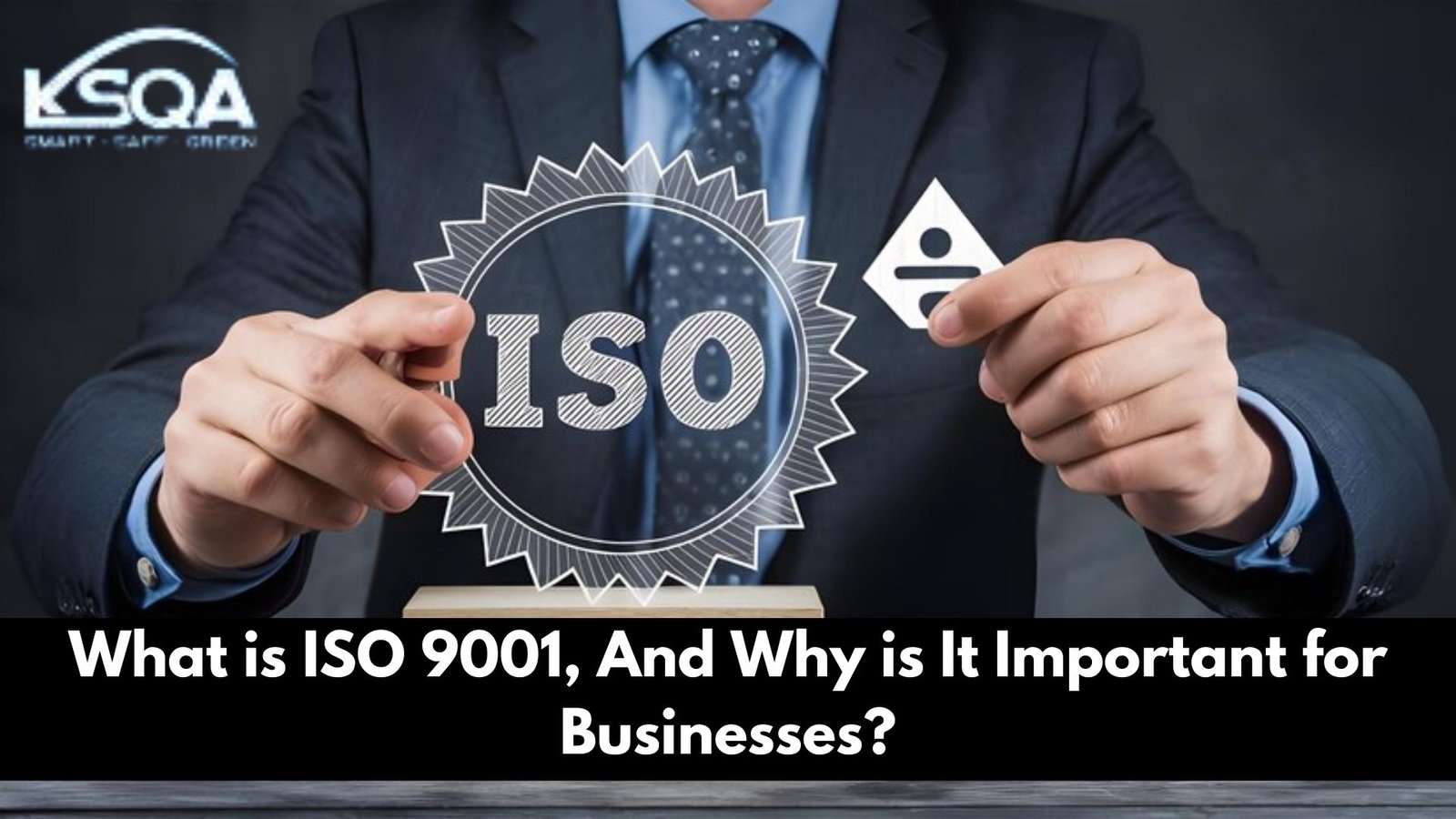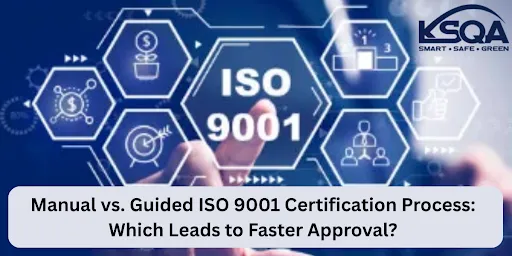ISO 9001 certification is a globally recognized standard for quality management systems (QMS). This certification helps businesses improve their processes, ensure customer satisfaction, and meet regulatory requirements. For small businesses, achieving ISO 9001 certification can enhance credibility, improve efficiency, and open up new market opportunities.
As of December 31, 2022, there were over 1 million companies worldwide with ISO 9001 certification. In the United States and Canada alone, approximately 30,000 companies have achieved this internationally recognized standard. With such widespread adoption, ISO 9001 is a powerful tool for growth and competitiveness.
In this article, you will learn about the key aspects of ISO 9001 certification, the benefits it offers, and the steps small businesses need to take to achieve it. We will cover ten essential points to help you understand the certification process and its advantages.
The Small Business Owner's Guide to ISO 9001 Certification
Understanding ISO 9001
ISO 9001 is a quality management standard that outlines the requirements for a QMS. It focuses on continuous improvement and customer satisfaction. This standard applies to businesses of all sizes and industries, making it a versatile tool for enhancing quality and efficiency.
Adopting ISO 9001 helps businesses create a structured framework to consistently meet customer and regulatory requirements. The latest version, ISO 9001:2015, emphasizes risk-based thinking and a process approach to quality management.
Benefits of ISO 9001 Certification
Achieving ISO 9001 certification offers several benefits, including improved process efficiency, reduced errors, increased customer satisfaction, and enhanced marketability. It also helps businesses comply with regulatory requirements and gain a competitive edge.
Moreover, certification can lead to better decision-making through data-driven insights and continuous improvement initiatives. These benefits can translate into cost savings and higher profitability for small businesses.
ISO 9001 Certification Cost
The cost of ISO 9001 certification varies depending on the size and complexity of the business. In the USA, costs can range from a few thousand to several tens of thousands of dollars. This includes expenses for training, consulting, audits, and certification fees.
While the initial investment might seem high, the long-term benefits, such as improved efficiency and customer trust, often outweigh the costs. Additionally, some businesses may find financial support through grants or subsidies available for quality improvement initiatives.
Key Requirements
To achieve ISO 9001 certification, businesses must meet several key requirements. These include having a quality management system in place, documenting processes, conducting internal audits, and demonstrating continuous improvement.
Companies must also show a commitment to quality at all levels of the organization, from top management to frontline employees. Regular management reviews and the use of performance metrics are crucial for maintaining compliance and driving improvements.
Preparing for Certification
Preparation involves understanding the ISO 9001 standard, training employees, and aligning your processes with the standard's requirements. Hiring an experienced consultant can help streamline this process and ensure all requirements are met.
Conducting a gap analysis to identify areas needing improvement is a common first step. This proactive approach helps businesses address deficiencies before the formal certification audit.
Implementation Steps
The implementation process includes defining quality policies, setting objectives, documenting procedures, and training staff. This phase is crucial for ensuring that all aspects of the QMS are effectively integrated into the business.
Successful implementation also involves engaging employees at all levels and fostering a culture of quality and continuous improvement. Regular communication and feedback loops are essential for sustaining the QMS.
Internal Audits
Conducting internal audits helps identify gaps and areas for improvement. These audits are essential for ensuring compliance with ISO 9001 requirements and preparing for the final certification audit.
Internal audits should be performed by trained personnel who are impartial and independent of the processes being audited. The findings from these audits provide valuable insights for corrective actions and ongoing improvement efforts.
Certification Audit
A certification body will conduct an external audit to verify that your QMS meets ISO 9001 standards. Successful completion of this audit results in the awarding of the ISO 9001 certificate.
The audit is typically conducted in two stages: a preliminary review of documentation and a detailed on-site assessment. Businesses must be prepared to provide evidence of compliance and address any non-conformities identified during the audit.
Maintaining Certification
Once certified, businesses must maintain their certification through regular surveillance audits and continuous improvement efforts. This ensures ongoing compliance and helps identify opportunities for further enhancement.
Maintaining certification also involves keeping up-to-date with any changes to the ISO 9001 standard and adapting the QMS accordingly. Regular employee training and awareness programs are crucial for sustaining a quality culture.
Choosing a Certification Body
Selecting a reputable certification body is crucial. Ensure they are accredited and have experience with businesses similar to yours. This will help ensure a smooth and credible certification process.
Look for certification bodies that offer comprehensive support, including pre-assessment services and guidance on best practices. Partnering with a well-regarded certification body can enhance the credibility and value of your ISO 9001 certification.
ISO 9001 Certification Requirements in the USA
ISO 9001 Certification Cost in the USA
The cost of ISO 9001 certification in the USA can vary widely based on factors such as the size of the business, the complexity of operations, and the level of existing compliance.
Typically, small businesses might spend between $5,000 and $15,000, which includes training, consulting, auditing, and certification fees
Conclusion
ISO 9001 certification for small business is a valuable investment that can lead to improved processes, increased customer satisfaction, and greater market opportunities.
By understanding the certification requirements and benefits and following the outlined steps, small businesses can achieve and maintain this prestigious certification. Embrace ISO 9001 to drive quality and success in your business.
Ready to take your business to the next level with ISO 9001 certification? KSQA can connect you with qualified consultants who will guide you through the certification process. Visit their website today to learn more.

.jpg)

.jpg)



.jpg)